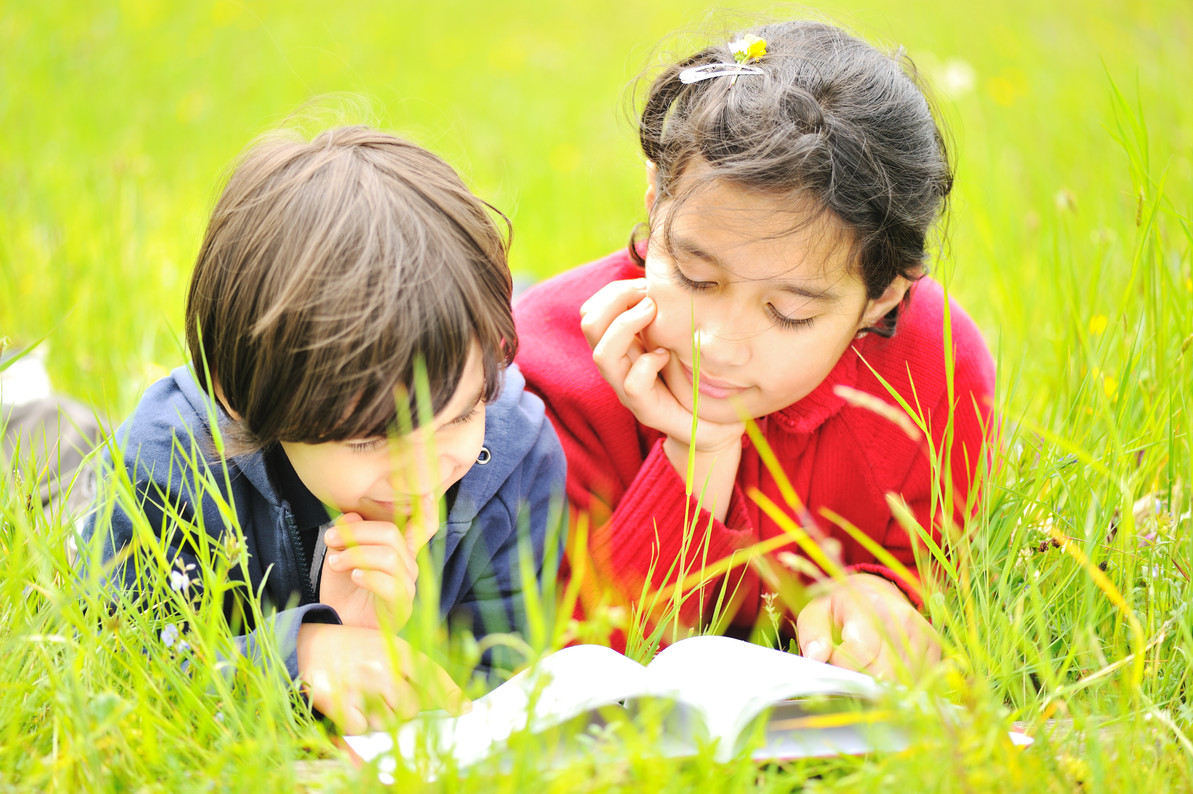Please Don't Forget the Children
By Barbara Dwyer-Heidkamp, LMHC
No Matter What Happens, Please Don’t Forget the Children.
Tools to support Children in Grief and Loss.
I am often curious about what leads an individual to a particular profession. Is it tradition, adult modeling, or perhaps childhood experience? When I first met my therapist, what I resonated with most was not only her kindness and openness but also her ability to validate my feelings and experiences without making me feel ashamed. Many months into building our therapeutic relationship, I learned that she, too, had experienced parental loss at a young age, just like me. I was flabbergasted. I wondered if her childhood trauma contributed to her ability to be a great therapist. As we progressed in my therapy, I began to ask this same question of myself. Could I be a therapist? Would my childhood experiences inform my ability to be empathic, compassionate, trustworthy, and authentic? After a long period of self-reflection, I answered yes. I felt called then, and I feel called now.
My two sisters and I were told to immediately come to the office. When I arrived in the auditorium, the cavernous space outside the principal’s office, I saw that my oldest sister was sitting there waiting for us. There was nothing particularly unusual about that. As the firstborn daughter, she was often put in charge since my mother worked all day. I walked over to her immediately. She took my hands in hers and she said, “Daddy is gone to Heaven”. I immediately started to cry, and as I bent toward my sister’s lap, I wondered why she called Da “Daddy.” We never called him that.
My other two sisters, in grades 6 and 10, arrived on the scene and heard the news. We were told that we would be going home early, and each of us was sent back to our own classroom to collect our belongings. With tears rolling down my face, and all by myself, I made my way back to my classroom. I struggled to turn the bi,g round doorknob and to push open the enormous, solid wood door, but I did it. I marched past the many rows of neatly organized desks where all my classmates were seated, up to the front of the classroom where Sister was standing, as if waiting for me. As I stifled back my tears and wiped my face with the back of my hand, I mumbled the bewildering news that my father had “gone to Heaven”. Upon hearing this information, and because I was crying Sister picked up tissue box of her desk and held it out to me. I took one or two and wiped my face and hands. Immediately after I had cleaned myself up, I was sent to my desk to gather my things and head home. This was just the beginning.
The following days were a blur of unusual and confusing events. I wasn’t told about anything except when to get ready to get in the car. I was brought back to a friend of the family’s house where I had often stayed before I entered first grade. I was invited “next door” to play with kids I only played with outside. My brother, who was enlisted in the air force, showed up and took me for a ride in his car. I knew something unusual was happening because some family members were crying. I wondered where my mother was because I couldn’t find her anywhere.
One major event that I was present for was my father’s wake. With no preparation or conversation of what a funeral home looks like or of WHO I might see lying dead, I can vividly recall being told by my fraternal aunt, and my father’s only sister, to “go over and say goodbye to your Daddy,” and she pointed toward the casket. Alone, and like a good little soldier, I did what I was told. I wandered over and stood next to the casket. I was only just tall enough to see over the top. I gawked at my dead father and wondered what it was all about.
I missed my father’s funeral altogether. It was later confirmed that I was the only child in my class who was not in attendance. All the kids in my family had attended Catholic School. And since my father died in May, a big month of devotion to the Blessed Virgin Mary, it was not unusual to go to church for most any reason. And so, my first-grade classmates attended Mass, along with the classmates of my older sisters. I was being taken care of someplace else. I was left out.
My Father died on a Friday. “Just like Jesus,” as the story goes. And because, as a family, we were so steeped in Catholicism, to the point of handing over all authority to the local priest and nuns, this coincidence became a crucial part of our oral history.
However, for me personally, this fact became permanently associated with a traumatic event. All the kids in our school brought their lunches to school every day. There was no cafeteria. Usually, lunches consisted of PB&J and or bologna with mustard. As a special surprise, we would occasionally find a Fluffernutter wrapped in waxed paper inside our brown lunch bag. And who knew that this sandwich, a national favorite, was invented just a few towns over from where we lived! There was no home baking done in our household, but sometimes lunch included a sweet treat we called “rocks.” Rocks were a kind of molasses and raisin cookies that my mother brought home from work. Along with a 6-oz glass bottle of milk that was lunch Monday through Thursday.
But not on Fridays. Fridays were different. Because we were devout and practicing Catholics, and were forbidden from eating meat on Fridays, we could expect a tuna sandwich on white bread. And herein lies the problem and the permanent stain on my soul.
My sin? I left my tuna fish sandwich in my desk over the weekend to rot and stink up the classroom! After all, I was 3 weeks past the Age of Reason, “the age when children are thought to be able to think about their actions and understand right from wrong”. This age of moral responsibility is a major milestone in Catholic indoctrination that is mysteriously achieved at age seven. So yes, disregarding all outside influences, up to and including the sudden death of a beloved parent, I was brought to the front of the classroom, and in front of all my peers, publicly scolded by what to me looked like a monster. A very tall nun wearing a large wimple revealing only her angry face, clothed from head to toe in long and heavy fabrics, and wrapped around her narrow waist, a huge wooden rosary clearly displaying the crucified Christ. Then and there, I was reminded that I was a bad and thoughtless little girl who should have known better than to leave a tuna fish sandwich in her desk over the weekend, no matter what. As I stumbled back to my desk, choking back my tears, I vowed that day never to make that same mistake again, and so far, I haven’t.
As a first grader, I was expected to make sense of news that would change my life forever, and since my mother was busy elsewhere, I was required to do it on my own. With a brief directive from my oldest sister, I was charged with finding my way back to my class of first graders and delivering the news, and receiving nothing but a tissue in terms of comfort. Immediately after, I was told to gather my things to go home, inadvertently setting up a scene that I remember still. And the final blow was the separation that I felt from my family, and especially from my mother, during my father’s wake and funeral, and again when I was publicly shamed upon returning to school.
As an adult looking back at my 7-year-old self, I regard everyone involved in my care as incapable or unwilling to offer even the most basic gesture of sympathy or compassion. Perhaps it was a sign of the times, but nonetheless, I was called upon to navigate this experience feeling alone, with no guidance and no hand to hold. Thinking back, it makes sense to me that I did exactly what I was told to do by my trusted adults, never knowing that these directives were well beyond my emotional maturity and would result in lifelong scars, including low self-esteem, anxiety, and depression.
Things have changed greatly since I was a kid, thankfully. As a society in general, we have become more knowledgeable about the overall processing of grief and loss. In addition, we now know that children require and deserve specific and careful attention and consideration.
With the knowledge that I have acquired over many years of experience, study, and training, specifically the skills learned through a two-year concentrated study of therapeutic approach known as Internal Family Systems(IFS), created by Richard C Schwartz, Ph.D. it became obvious that witnessing the “part” of myself that is a seven year old experiencing both loss and grief would be both healing and therapeutic. It was through this lengthy exercise, overseen by my own IFS trained therapist, that I was able to tap into the musings of my younger self, and other “parts” as well and to identify what would have been helpful to my younger self so many years ago. And while this “internal” knowledge did not change the event of losing a parent, it did result in healing. And with this healing came the courage to delve further, and more deeply, into this so often overlooked subject matter.
Now, after learning about and practicing many therapeutic models, I often stop and wonder how my own life would have been different if these skills were known and practiced when I was a kid, experiencing the unexpected and bewildering death of my own father.
Instead, I am often called upon to be of service to other children and families suffering a similar loss. Recognizing and understanding the ways that children grieve can be useful to all of us. The following simple guidelines will offer you a place to start as you support a child in your life through the often-unpredictable journey loss and grief.
You’ve got this. Do not be afraid.
*Normalize and Validate: Assure children that whatever feelings that they are having are acceptable and natural (sadness, anger, curiosity, fear).
*Allow Children to witness your feelings.
*Communicate with children using words that are appropriate to the child’s age and understanding.
*Listen and Respond to the child’s questions. Answer truthfully.
*Address whatever fears the child may express regarding the deceased loved one, and the potential fear of losing you also.
*Appropriately inform children of rituals and public gatherings and allow participation if desired.
*Allow and expect increased “neediness” and potential physical or emotional regression. Increase physical touch.
*Include children in daily routines: meal preparation, hygiene, and chores
*Practice Patience with everyone involved.
*Keep in Mind that Grief does not happen in a straight line.
*Additional resources include Books, a Pediatrician, and Grief Counseling
Just as with their trusted adults, it is important to normalize the grieving process for children. And just as with adults, it can be difficult to grasp the idea that grief does not happen in a straight line for anyone. And it does not happen overnight. It can be overwhelming to recognize that grief most often subsides over time, but it is never completely over. Furthermore, it can be activated in ways and times that no one can foresee.
The tools and guidelines presented here will be useful for any type of loss that a child may experience, death of a beloved elder, a friend moving away, a pet dying, or a sibling developing a serious illness. All of these will help the child make sense of the loss and feel less alone.
To quote David Kessler, Grief Expert and Teacher, “Healing doesn’t mean the loss didn’t happen. It means that it no longer controls us.”
David Kessler, Finding Meaning: The Sixth Stage of Grief
https://ifs-institute.com/resources/articles/internal-family-systems-model-outline
https://www.centerforloss.com/
Brenner, G.H.,MD (2022, February 22). How Losing a Parent Affects Young Children. Psychology Today.
About the Author
My name is Barbara Dwyer-Heidkamp. I am an LMHC(Licensed Mental Health Counselor) in the state of Massachusetts. I have been in private practice for nearly 20 years. Although I came to licensure as a midlife career change, I feel like I have been counseling just about all my life.
Most likely due to my early loss at 7 years old, I have always been interested in death and grief. I have never been afraid to broach the subject with the dying and with the bereft. My professional Grief training began with David Kessler at least a decade ago. More recently, I was a graduate of the first Grief Educator class, also presented by David Kessler.
Shortly after completing the Grief Educator course, a group of us decided to create a monthly Grief Book club to become more familiar with the current literature available on grief. From there, a couple of us were inspired to begin to write our own book specifically addressing the needs of the grieving and how they can learn to ask for what they want and need, rather than merely accepting what a well-intentioned supporter might think is needed.
My colleague and I have uncovered some fascinating trends, and we look forward to publishing some of what we have discovered.




